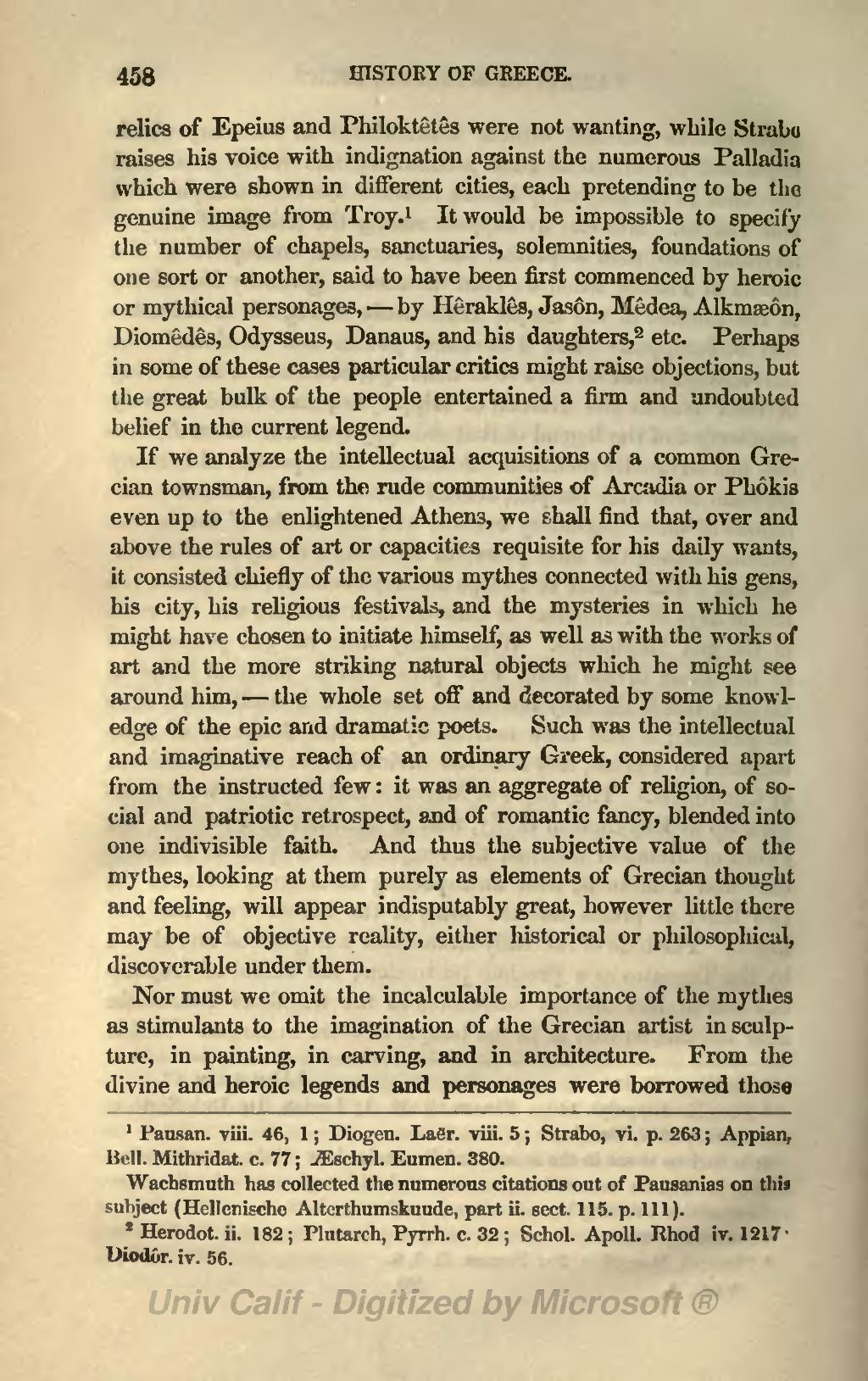458 HISTORY OF GREECE. relics of Epeius and Philoktetes were not wanting, while Strabu raises his voice with indignation against the numerous Palladia which were shown in different cities, each pretending to be the genuine image from Troy. 1 It would be impossible to specify the number of chapels, sanctuaries, solemnities, foundations of one sort or another, said to have been first commenced by heroic or mythical personages, by Herakles, Jason, Medea, Alkmason, Diomedes, Odysseus, Danaus, and his daughters, 2 etc. Perhaps in some of these cases particular critics might raise objections, but the great bulk of the people entertained a firm and undoubted belief in the current legend. If we analyze the intellectual acquisitions of a common Gre- cian townsman, from the rude communities of Arcadia or Phokis even up to the enlightened Athens, we shall find that, over and above the rules of art or capacities requisite for his daily wants, it consisted chiefly of the various mythes connected with his gens, his city, his religious festivals, and the mysteries in which he might have chosen to initiate himself, as well as with the works of art and the more striking natural objects which he might see around him, the whole set off and decorated by some knowl- edge of the epic and dramatic poets. Such was the intellectual and imaginative reach of an ordinary Greek, considered apart from the instructed few : it was an aggregate of religion, of so- cial and patriotic retrospect, and of romantic fancy, blended into one indivisible faith. And thus the subjective value of the mythes, looking at them purely as elements of Grecian thought and feeling, will appear indisputably great, however little there may be of objective reality, either historical or philosophical, discoverable under them. Nor must we omit the incalculable importance of the mythes as stimulants to the imagination of the Grecian artist in sculp- ture, in painting, in carving, and in architecture. From the divine and heroic legends and personages were borrowed those 1 Pausan. viii. 46, 1 ; Diogcn. Laer. viii. 5 ; Strabo, vi. p. 263 ; Appian, Bell. Mithridat. c. 77 ; ^schyl. Eumen. 380. Wachsmuth has collected the numerous citations out of Pausanias on thii subject (Hellenische Altcrthnmskunde, part ii. sect. 115. p. 111). 2 Herodot. ii. 182; Plutarch, Pyrrh. c. 32 ; Schol. Apoll. Khod ir. 1217- Diodor. iv. 56.
